Understanding the 4 Cardiac Rehabilitation Phases

Navigating life after a cardiac event can be daunting, but cardiac rehabilitation offers a structured pathway to recovery and improved heart health. The comprehensive program, tailored to individuals recovering from a heart attack, heart failure, heart disease, open heart surgery, or any other kind of heart condition, plays a significant role in enhancing quality of life and managing cardiac symptoms.
In this article, we delve into the four phases of a cardiac rehabilitation program—spanning from the immediate aftermath of a cardiac event to long-term maintenance. Each phase, from the acute phase to outpatient care and maintenance, is designed to address different aspects of recovery. Cardiac rehab incorporates supervised exercise, education on heart-healthy habits, and ongoing support. Decisions regarding cardiac rehabilitation should be made by a cardiologist or qualified physician responsible for the patient’s care, ensuring the necessary oversight and supervision.
Whether you’re aiming to regain fitness, manage risk factors, or simply enhance your well-being, understanding the progression through these phases can empower you on your journey to heart health. 1,2
Phase I: Acute Inpatient Rehab
During Phase I of cardiac rehabilitation, which typically commences soon after a cardiac event, the primary focus is on immediate stabilization and mobilization. Working closely with your healthcare team, including physical therapists, doctors, and nurses, the goals of phase 1 are numerous. First and foremost, Phase I aims to assess your mobility and cardiovascular response to basic activities, ensuring a safe transition from the acute care setting. This phase involves comprehensive monitoring and supervision, with physical therapists conducting assessments such as blood pressure checks, EKG monitoring, and functional mobility evaluations.
Patient education is also a major focus, with the emphasis on understanding risk factors and initiating steps towards prevention. Bedside exercises are introduced, tailored to individual tolerance levels but with the overarching objective of maximizing recovery. As healing progresses, a discharge plan becomes the next goal. This may involve the prescription of appropriate assistive devices to ensure a smooth transition to Phase II. 2,3
Phase II: Early Outpatient Subacute Rehab
Phase II of a cardiac rehab program marks the transition from leaving the hospital to outpatient rehabilitation, typically lasting between three to six weeks. As you move into this phase, the focus shifts towards close monitoring of your progress and further education on managing your condition. In the outpatient setting, you’ll receive comprehensive guidance on gradually increasing exercise levels and medication management, aimed at reducing the risk of future cardiac events.
The main goal is to consolidate the learnings from Phase I while empowering you to take more control over your recovery journey. Through monitored exercise sessions and personalized education, you’ll not only reinforce the lifestyle changes initiated in Phase I but also cultivate heart healthy habits and routines essential for long-term well-being. Additionally, Phase II provides crucial psychological support as you adjust to life post-cardiac event, fostering independence and self-care skills necessary for transitioning to Phase III. 1,2
Phase III: Intensive Outpatient Rehab & Education
Phase III of cardiac rehabilitation represents a significant step towards independence and enhanced cardiovascular health. In this intensive outpatient phase, you’ll work closely with your physical therapist to advance the intensity and duration of your exercise regimen. Transitioning towards self-monitoring, you’ll be empowered to track your own response to exercise, including heart rate and perceived exertion, while your therapist provides guidance and support.
Education on lifestyle modifications continues, with a focus on integrating stress management techniques essential for long-term heart health. Group settings may foster peer support and community involvement, enriching your rehabilitation experience. Throughout Phase III, a variety of exercises, including walking, biking, and strength training, are tailored to your individual needs, aiming to improve flexibility, strength, and aerobic capacity. Regular evaluations track your progress, ensuring that you’re on track to achieve optimal cardiovascular fitness and minimize the risk of future heart problems. 2,3
Phase IV: Maintenance & Independence
Phase IV, the last phase of cardiac rehabilitation marks the transition to independent exercise and lifestyle management, representing a lifelong commitment to sustaining cardiovascular health. With a solid foundation established from the previous phases, Phase IV empowers individuals to continue following the guidance on exercise, nutrition, and stress management learned during rehabilitation. Whether proceeding independently or seeking further support from physical therapists or qualified gym instructors, the emphasis remains on maintaining healthy habits and managing risk factors.
Regular check-ups with healthcare providers ensure ongoing monitoring and adjustment of strategies to effectively manage heart conditions and prevent complications. The main goal of Phase IV is to uphold the lifestyle changes initiated earlier, including regular physical activity, tobacco cessation, and stress management. Together, these promote sustained long-term cardiovascular health and an improved quality of life. 1,2,3
References
[1] Stephenson, Bobby. “The Four Cardiac Rehab Phases.” Short & Long Term Rehab Blog, blog.rehabselect.net/the-four-cardiac-rehab-phases. Accessed 18 June 2024.
[2] Sears, PT, Brett. “4 Stages of Cardiac Rehab to Return to Your Life after a Cardiac Event.” Verywell Health, Verywell Health, 15 Aug. 2022, www.verywellhealth.com/four-phases-of-cardiac-rehabilitation-2696089.
[3] “The Four Phases of Cardiac Rehabilitation.” UPMC Western Maryland, 7 Apr. 2020, www.wmhs.com/4-phases-cardiac-rehab/.
The information provided in the article is for general informational purposes only. This information is not a substitute for medical advice. Accordingly, before taking any actions based upon such information, you are encouraged to consult with the appropriate professionals.



